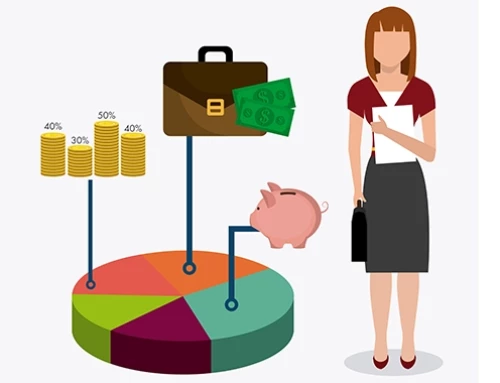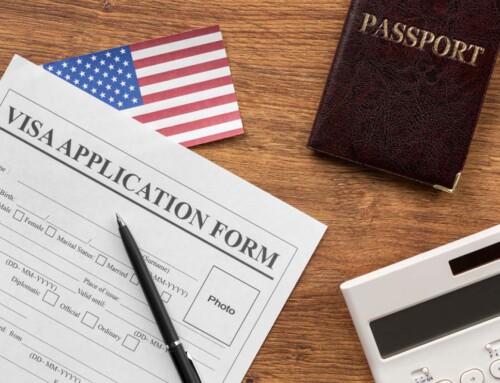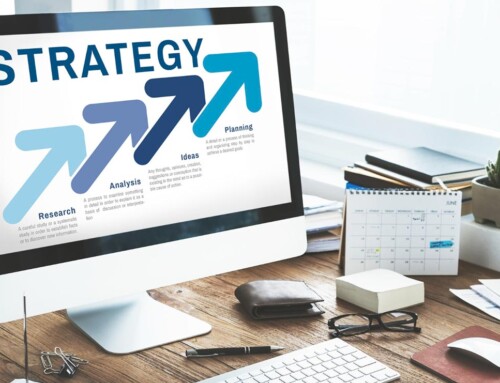Contents
Online or in-person, appointments are the lifeblood of your small business. They’re where deals are made and customers converted, especially if you’re running a service-based business. So, it makes sense to find appointments being the center of a lot of attention everywhere. From sales tools and CRM platforms with integrated appointment management to all sorts of standalone appointment apps, you have more than a few options to set up your appointments. Naturally, some are more straightforward and efficient than others, but I’ll leave that discussion to the later sections.
What receives less attention than tools for making the appointment, however, is the way you should handle communications about that appointment. Even the best booking and appointment apps cannot actually reassure clients about their meeting and how it’s going to go. That’s why the importance of communication cannot be overstated. A lot of times, the customers making the booking like to receive confirmation that somebody is in fact in the loop about the meeting and that it will take place. So, a reassuring email confirming the appointment can go a long way to improve customer relations, increasing conversion rates as well as loyalty.
What is an Appointment Confirmation Email
An appointment confirmation email is exactly what it sounds like: an email telling people who’ve scheduled an appointment with you that you’re going to be in that meeting. Now, there are different reasons why an appointment confirmation email is a good idea. I mean, the same thing can be achieved by a phone call or a text message. But as data has shown, email is the best, most professional way of delivering notifications, confirmations, and communications with leads and customers. So, to improve your scheduling efficiency, email is your best shot. But when do you need to send confirmation emails? Well, that actually comes down to how the appointment has been made. Depending on how your business handles scheduling and meetings, you’ll be using one or both of the following methods.
You Create a Manual Appointment
If you’re not yet using a sales and marketing solution with automated booking features like RunSensible, this will be your primary means of scheduling meetings. In this method, the assumption is you’ve been communicating with the customer (or lead) in some way (email, messages, phone, etc.) and you’ve settled on a date and time to meet. That’s called a manual appointment, meaning you actually need to set everything up on your calendar yourself. So, with manual appointments, you need to write an email to that customer to make the scheduling official. That is to say, you’ll need to send an appointment confirmation email. It’s going to function both as a notification and confirmation and if done right, it can improve your customer relations. It’s crucial to keep this type of appointment confirmation clear and concise, letting the customer know who you are and what the email is about as quickly and efficiently as possible. Naturally, this is not the only point you need to consider — the next section provides more best practices you should follow for better results. Plus, you can find some examples of this in the templates I’ve included further down the page.
Customer Books a Meeting Online
As a complete CRM, sales, and marketing tool, RunSensible lets you create convenient, easy-to-use booking calendars people can use to schedule meetings with you. All you have to do is enter the days and times you’re available for meetings and put the automatically generated calendar on your website. RunSensible Appointment even allows you to set specific conditions for finalizing a meeting. Imagine, for example, a hairstylist — they want people to book a session but they also want to get rid of all that hassle that comes with negotiating and handling payment. With RunSensible, they can automatically issue an invoice for the session and confirm a booking only when that invoice is paid and processed.
When it comes to this kind of appointment, a confirmation email is much more critical. The customer is basically dealing with an automated calendar on a website. Without a confirmation email, there is no reassurance that you’ve been notified of the meeting they’ve requested and that you’re okay to go ahead with it. Personally, I’m much more likely to trust a business with a human presence than one that seems efficient but entirely automated. So, when the convenience of online booking is combined with that human touch of a customized email, you get the best of both worlds — fast conversion and happy customers.
Appointment Confirmation Email Best Practices
Here are some of the vital rules to keep in mind when creating your appointment confirmation email. Of course, there are other crucial best practices you should consider as well. Take a look at this list of email writing best practices for some of the more important ones.
Short and to the Point
These are words to live by, at least when writing business emails. Sure, everyone likes to have a nice, relaxed conversation, but an email is just a one-sided communication and it’s not like you’re best friends with your customers. So, instead of spending sentences on pleasantries, tell your recipient why you’re writing the email and the details of the appointment.
Clear Subject Line
I can’t stress enough how vital the subject line is. I’m speaking, of course, about the short phrase or sentence you put as the “subject” of your email. It’s the recipient’s major signal in whether or not they need to open that email. If you’re thinking that they’ll definitely open an appointment confirmation email because they made the appointment themselves, well, I wish it were that simple. When it comes to most people, you’re probably right: they’ll remember your name or your company’s name. But sometimes you may be dealing with really busy people, or you may even be communicating with another company (B2B). That means you cannot take anything for granted. So, make sure the subject line mentions what appointment it’s confirming.
This Isn’t about Marketing
If you’re doing a lot email marketing (if you’re not, read this guide on email marketing right now), you may be tempted to stuff this confirmation email with lots of brand-specific design and perhaps even some marketing content. Don’t. It’s true, transactional emails are a great opportunity for marketing because of their higher open rates. However, you don’t want to confuse and turn off the recipient. So, if you do want to include some content, make sure to keep it to an absolute minimum, and position it after the body of the email.
Appointment Confirmation Email Templates
Confirming Appointment Booked by Customer – Template #1
Subject: Confirming appointment on {date}
Dear {Name},
I appreciate the invitation to {purpose of the appointment}. I’m confirming our appointment on {date} at {time} to discuss {topic}. I currently have the meeting place scheduled at {location}. If you want to reach me to adjust our appointment or change any of these details, please call me at {phone number}. I look forward to meeting you on {date}.
Sincerely,
{Your Name}
Confirming Appointment Booked by Customer – Template #2
Subject: Your meeting on {date} has been confirmed!
Dear {Customer’s name},
This is just to remind you that the meeting you requested on {Date and time} has been confirmed.
If you have any questions, need to reschedule or cancel, just email me at {Email ID}.
I look forward to seeing you on {Date and time} at {Physical Location/Online meeting link}
All the best,
{Your Name}
Confirming Appointment Booked by Customer – Template #3
Subject: Confirming your appointment on {date}
Hi {CUSTOMER-NAME},
This is just to confirm the appointment you booked with {My Name/Company Name} on {DATE-TIME}. Please try to be on time if the meeting is online and 15 minutes early if it’s in person.
If you have any questions or want to reschedule, please reach out to me by phone at {company phone number} or send me an email.
Best wishes,
{My Name}
Confirming an Appointment You Made Manually – Template #1
Subject: Confirming details for appointment on {date}
Dear {Name},
Thank you for writing to confirm our appointment. I have you scheduled on the calendar on {date} at {time} at {location}. Please contact me at {phone number} or {email address} if you would like to reschedule or have any questions before the meeting.
Sincerely,
{My Name}
Confirming an Appointment You Made Manually – Template #2
Subject: Checking in before the meeting
Dear {Name},
This email is to confirm the appointment made over the phone yesterday. The meeting was scheduled to be held via zoom on September 7, 3:00 PM. Let me know if this still works for you.
Thank you for the opportunity. I am looking forward to it.
Regards,
{My Name}
HR Manager
Confirming an Appointment You Made Manually – Template #3
Subject: Confirming our appointment on {date}
Dear Mr. {Last Name},
I’m writing to confirm our appointment on {date}, {time}. If you have any questions or want to make any changes, please contact me by replying to this email.
Regards,
{My Name}
Confirming an Appointment You Made Manually – Template #4
Subject: Confirming our appointment on {date}
Dear {Name}
Our sales team has confirmed you for an appointment on {date}. You should have previously received another email containing the details of the appointment. If you have questions, please reply to this email get in touch with us.
Thank you,
{Company Name}
Automating Appointment Confirmation Emails for Max Efficiency
Yes, communicating with your customers after scheduling a meeting is going to have an impact on your sales. But what if you’re a solo entrepreneur and have to handle everything by yourself? How are you going to make the time to write those personalized confirmation emails? And what if the small business you’re running has started to grow and people are booking dozens of appointments per week? Even with a couple of employees, it’ll be hard to take care of these communications without wasting a lot of time. Enter RunSensible.
RunSensible is a CRM with sales and marketing tools specifically designed for entrepreneurs and small business owners trying to save time and grow their businesses. RunSensible’s appointments feature lets you schedule meetings hassle-free — but that’s not the end of it. Using our incredible email and automation features, you’ll have confirmation in the bag too. Simply use one of our available templates or create one yourself, personalize it using all sorts of parameters from your CRM database, and automate the whole thing to run when a new appointment is booked.
Disclaimer: The content provided on this blog is for informational purposes only and does not constitute legal, financial, or professional advice.






